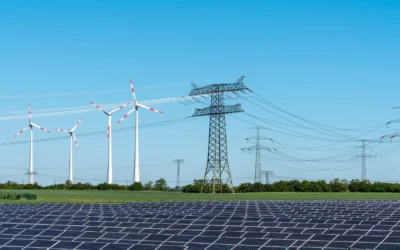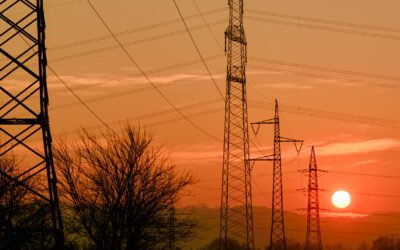- SF6 gas, which has a global warming potential roughly 25,200 times that of CO2, is still the most widely used insulating gas for switchgear applications.
- Siemens Energy and Mitsubishi Electric signed an MoU to carry out a feasibility study aimed at the development of high voltage switching solutions.
- GE Renewable Energy’s Grid Solutions business and Hitachi Energy intend to share complementary SF6-free intellectual property concerned with their SF6-free solutions.
Sulphur hexafluoride which has a global warming potential roughly 25,200 times that of CO2 is still the most widely adopted insulating gas for switchgear applications especially in HV switchgears, As the world is moving towards cleaner and more sustainable technological solutions, however, switchgear manufacturers are increasingly introducing SF6-free switchgear solutions. Although, SF6-free switchgear is still a nascent technology, it is expected to pick up pace with the growing concern for the environment and as regulations regarding the use of fluorinated gases in the electrical industry are revised globally.

Table 1: GWP and Lifetime in Atmosphere for GHGs,
Source: IPCC AR6
Current Landscape of the SF6-Free HV Switchgear Market
A framework agreement has been signed between Siemens Energy and Norwegian distribution system operator Lyse Elnett focused on strengthening the Norwegian power grid. Under the agreement, Siemens will provide services and transmission products for several substation in Southern Norway followed by the gradual elimination of fluorinated gases (F-gases) in their substations.
Finland’s transmission system operator has awarded a contract to deliver 10 bays of SF6-free switchgear to Siemens Energy. It is the largest order for SF6-free high voltage Gas Insulated Switchgear (GIS) in Europe for Siemens till date. In Finland, this will be the first GIS to replace SF6 with clean air and a mixture of nitrogen and oxygen that has zero Global Warming Potential (GWP).
Hitachi Energy continues to play a vital role in Sweden’s sustainable energy transition goals as a key Swedish utility recently commissioned EconiQ™ Live Tank Breaker (LTA) for a 145 kV distribution substation in Skovde. Similarly, Hitachi Energy will also install Spain’s first eco efficient EconiQ™ Live Tank Breaker for 72.5 kV and 145 kV at the Alhama de Murcia substation.
GE Renewable Energy’s Grid Solutions has also won a contract for Sweden’s first SF6-free GIS which is to be installed at the Vattenfall Eldistribution AB Lindhov substation in Tumba. It has also won a contract to deliver a substation to the Norwegian utility Elvia which will feature GE’s g3 gas (alternative for SF6 gas).

Figure 2: SF6 free alternatives product benchmarking.
Source: KEMA Labs.
Role of 3M
GE Grid Solutions and Hitachi Energy both utilize Fluro nitrile-based gas mixtures in place of SF6. These mixtures have been developed in collaboration with 3M. Siemens Energy, on the other hand, uses clean air insulation in conjunction with a vacuum circuit breaker. 3M’s insulating gas offerings include: 3MTM NovecTM 5110 insulating gas (fluoroketone capable of achieving a 99% reduction in GHG emissions when used in gas mixtures to replace SF6 in on-grid commercial applications) and 3MTM NovecTM 4710 insulating gas (fluoronitrile capable of achieving 99% reduction in GHG emissions when used in gas mixtures in on-grid commercial applications).
Agreements Between Rivals Regarding SF6 Alternatives
On the World Environment Day (2021), Siemens Energy and Mitsubishi Electric signed an MoU to carry out a feasibility study aimed at the development of high voltage switching solutions that exhibit zero GWP and are capable of replacing green-house gases with clean air for insulation purposes. Both partners intend to research methods that will help scale up the application of clean air insulation to higher voltages. Both companies will continue to manufacture, sell, and service switchgear solutions independently nonetheless.
Similarly, GE Renewable Energy’s Grid Solutions business and Hitachi Energy announced a cross licensing and non-exclusive agreement which will allow both companies to share complementary SF6-free intellectual property concerned with their SF6-free solutions.
Looking Ahead
According to Power Technology Research, a major impediment in the widespread adoption of SF6-free switchgear alternatives despite them being obviously better for the environment is the high upfront initial cost of the switchgear despite the lower total cost of ownership of SF6 switchgear as compared to SF6-based switchgear. In addition to this, there is a general perception regarding SF6-free switchgear in the power sector that it is less reliable than SF6-based switchgear. The SF6-free switchgear market is moving towards consolidation as is evident from the agreements between rival companies. This essentially means that there is a possibility of a single SF6-free alternative being used by all the major players in the future. As far as prices are concerned, Power Technology Research expects the prices of SF6-free switchgear to decrease as the demand increases in the future.
High Voltage Switchgear Service Overview
The research presented in this article is from PTR's High Voltage Switchgear service. For information about this service please submit a request shown below.
Contact Sales:
More about our:
High Voltage Switchgear Market Research
Recent Insights
Europe’s Switch to Sustainable Power: The Rise of Solid-Insulated Switchgear
As Europe intensifies its shift towards sustainable energy solutions, Solid Insulated Switchgear (SIS) is emerging as a key technology in the...
US Elections: Consequences of a Second Trump Presidency for Energy Sector
The US is making strides to move away from fossil fuels and eventually decarbonize the energy sector. The White House aims to achieve 80% renewable...
Sustainability Across Sectors: Highlights from GreenTech Festival 2024
Recently, I had the privilege to attend and present at the Greentech Festival, an excellent event in the realm of sustainability. This influential...


